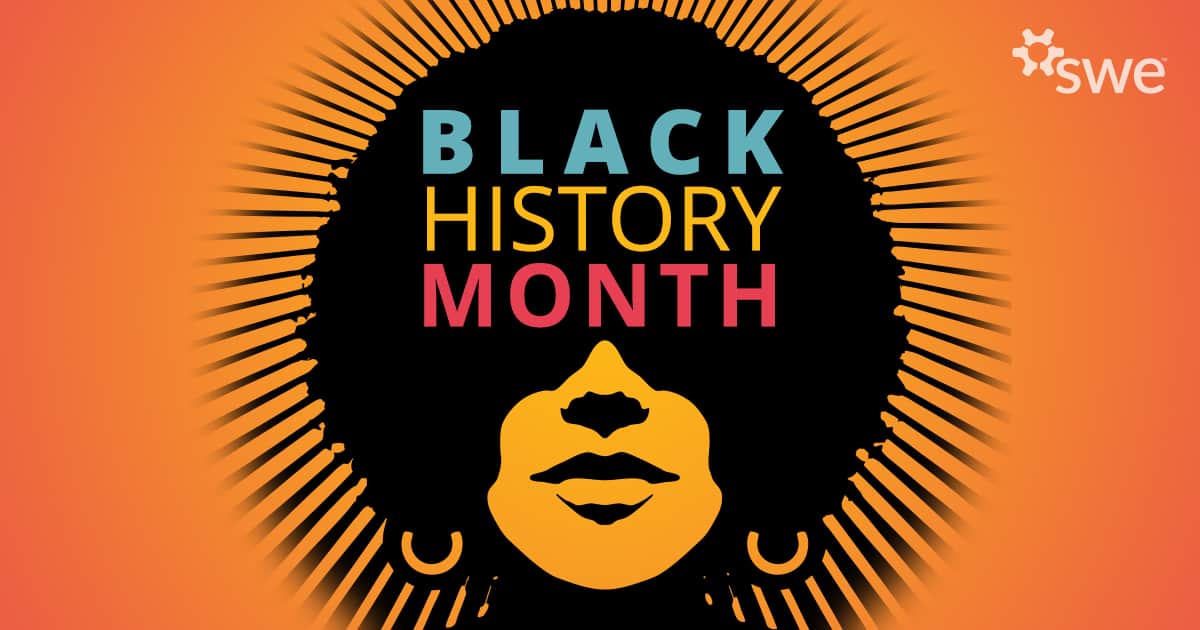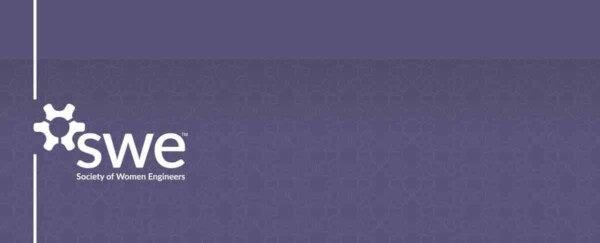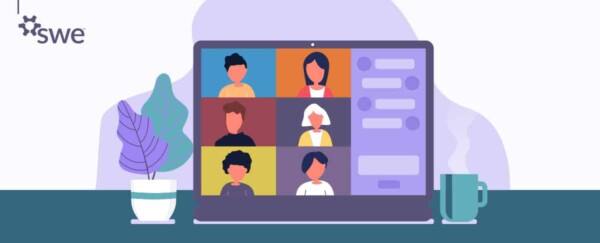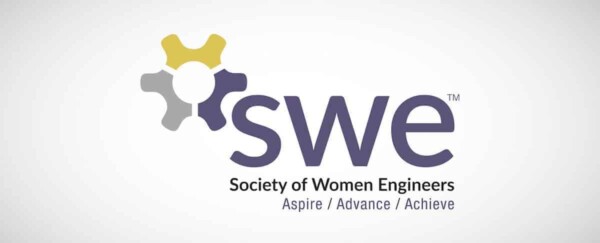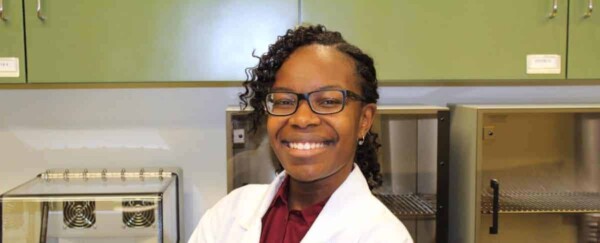In celebration of Black History Month, SWE will be highlighting African American women engineers and entrepreneurs in a series of blog posts.
Meet and learn more about three SWEsters in the African American Affinity Group: Sherrie Rippe, Trenisha Tait, and Monica Brown Challenger.
Sherrie Rippe
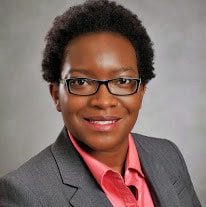
Tell us about your background: Where are you from?
I grew up in Alabama and I now live in Seattle, WA. I knew from middle school onward that I wanted to be (1) a chef, (2) an engineer, or (3) a history professor. I attended college at Washington University in St. Louis with Civil Engineering as my major, and I took most of my electives in European History but I also took classes in Business. During my time in school I had two internships. One was within Municipal Government and the second was for a Civil Engineering construction firm. These two internships varied greatly in location and work statement. For the government job I was reviewing city plans for development and working with city planners to determine the viability of plans submitted to the city for future growth and environmental impact. The second internship involved working out in trailer on a construction site six days a week to design coffer dams. These internships helped me to narrow down what job I was comfortable doing and would bring me the most enjoyment.
Upon graduating with my Bachelors and Masters degrees in Civil Engineering, I went to work for the Boeing Company as a Structural Analysis Engineer. Twelve years later I am still at Boeing, where I am a Lead Stress Engineer on the Production Engineering team. I get to use my Civil Engineering degree to analyze the tooling that is used to build commercial aircraft.
When I am not working I love to experiment with new recipes, read, travel (when able), and to sew.
What attracted you to the world of engineering/STEM?
Honestly, I was attracted to the fact that I would be able to shape my career so that I could work on things that truly interested me. Do I enjoy math? Sometimes. Ultimately, I like solving problems and improving the lives of others. An engineering degree opens so many doors than just the typical engineering career.
What does being from the African Diaspora or an ally mean to you?
It means that I live and work within a system that’s not designed to support my success. A system that grew from the blood and sweat of my ancestors. Therefore, it is up to me as a descendent of the African Diaspora to not only succeed, but to make sure the path to success is available to those that come after me.
How have you navigated your career as a woman of color?
I have tried to be as “authentic” as possible. Meaning that I am my whole public self when I enter the office: strong in my convictions, willing to learn, trustworthy and reliable; my coworkers know they can trust me to meet deadlines and provide them support. I have a trusted cohort of black female engineers that I meet with biweekly to discuss ideas and concerns about work, and also growth opportunities.
Have you experienced any challenges or discrimination because of your race or gender? How have you surmounted them?
The biggest challenges have been the microaggressions that have occurred whether directed towards me specifically or to others. Sometimes questioning whether I indeed heard what was said correctly, and having to decide how to approach a person or similar situation in the future. In these situations I really rely on my cohort and my mentors to help me work through what has occurred and what steps to take.
Provide some positive experiences and successes you have accomplished working/schooling through STEM?
I have been able to not only write a process and inspection document, but also travel to go see a customer perform the items outlined in the document without deviation. That may seem trivial, but this was a process document that went out to customers around the world and the process saved significant man hours.
What advice would you offer to girls or young women who are interested in STEM?
STEM is not just pocket protectors or lab coats. It’s developing the math and ships that will send humans into the universe. It’s learning about the universe and how to improve the life of your neighbors. You can do anything you set out to do with a few math and science courses. The path will not always be easy to navigate, but the journey is rewarding.
Did you have any mentors or role models who helped paved the way and/or shaped your educational/professional career path?
My mother was my role model that helped pave my way educationally; she graduated high school at 16 and graduated college at 19 to become a teacher. She was always my biggest supporter and showed me that regardless of the institutional obstacles that can be put in your way there is always a path around/under/through that obstacle.
In college my mentor was my college advisor Dr. Thomas Harmon. He pushed me to continue on my engineering journey when I wanted to quit, and told me to explore outside of the typical Civil Engineering jobs and companies.
How can we prepare for opportunities and advocate for ourselves as women of color in the workplace?
Networking is the number one way, followed by continuing education as a close second. Your network is where you can learn about upcoming opportunities, as well as, serve as a way for you to communicate your skills, aspirations, or when you are looking for new opportunities and special projects. Having a diverse network not only within your company but also across your chosen industry at different companies increases opportunities. In addition, keep up with new technologies and breakthroughs in your industry through continuing education, will keep your knowledge fresh, subscribe to journals within your chosen discipline. Make it a habit to speak about the successes that you have had to date. It is not bragging if it is true, and it is information that is being asked for.
You are involved in ERGs, professional associations and other D&I forums in the community. Why is that important to you and why should everyone be involved in championing inclusion?
I am a member of ASCE, NSBE, SHPE, and SWE. These professional associations are so important not only for their community service activities but also for networking with diverse engineers from around the world.
In addition, I serve on boards and committees at colleges and nonprofit organizations. This work is so important to me, because fostering a curiosity in STEM topics students early is integral to further increase diversity and retention in STEM fields. I truly believe that everyone who has the desire and skills should be at the table, and that can only happen if there is a network of support systems that start in middle school and continue through college and early career years. Science fairs, job shadowing, mentoring, and scholarships are all pieces of the support system needed throughout, and if we want to “boldly go where no man has gone before” we will need diverse ways of thinking to spark innovation and to develop new skill sets.
Trenisha Tait
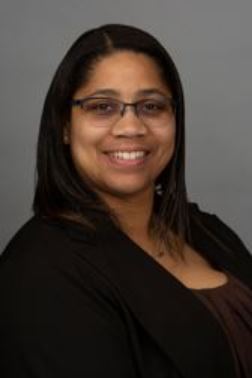
Tell us about your background: Where are you from?
I am originally from Kansas City, Missouri. I have lived in Oklahoma for over 8 years with my husband and two furry kids. My undergraduate degree, BS in Mechanical Engineering, was earned at the University of Missouri. At Embry-Riddle Aeronautical University, I earned a MS in Aeronautics with specializations in Aviation Aerospace Management and Unmanned Aerial Systems. I started my professional career at Sikorsky Aircraft as a Flight Test Engineer working on Blackhawk helicopters. After a while I received an opportunity to work with Pratt and Whitney and have been working with the company since. Through Pratt and Whitney I have work in several organizations gaining experience in operational manufacturing, customer support engineering, project engineering, and logistics engineering. I enjoy traveling, volunteering, hiking, painting, reading and playing video games. I am involved in several professional engineering organizations and employee engagement teams. I am a huge Harry Potter, Star Wars, Marvel/DC geek.
What attracted you to the world of engineering/STEM?
Robotics and unmanned aerial systems. Any way I could support making life easier and improving the environment. From helping patients whom have lost a limb, to developing a more environmental friendly aircraft, to reducing risk of life by inventing unmanned first responder machines. Helping people and making the world a safer place is what I have always been passionate about.
What does being from the African Diaspora or an ally mean to you?
Everything. It is honestly my first thought. Being a light skinned black women have had to fight on both sides: individualism and community. Being a model and encouraging the younger generation to stand up and keep charging forward is important to me.
How have you navigated your career as a woman of color?
Keep moving forward. Understanding there is always an opportunity to grow and develop into a stronger more knowledgeable leader.
Have you experienced any challenges or discrimination because of your race or gender? How have you surmounted them?
There are always individuals in the world whom will only see a promotion or movement as a disadvantage to them because I am a woman, and even more a Black woman. Every day is a day to show my worth and not give people the opportunity to only see race and gender. Everyone I come in contact with knows I am here to accomplish what is in front of me. Sometimes not being heard can be frustrating, however I see it has one more challenge to overcome.
Provide some positive experiences and successes you have accomplished working/schooling through STEM?
Girls in Engineering Day- Organizing an event to offer volunteers from my workplace to come and take to young women about working in the aviation industry. It also gave the volunteers a chance socialize with those they do not work specific with and some women pilots.
Geekapalooza is a STEAM festival for school age kids K-12. Volunteering at event activity booth and joining a women in STEAM panel through SWE.
SWE Raspberry Pi Workshop at Edmond Memorial High School Parent Educator Program – Volunteering to speak with parents about my experience and how important my mom was in supporting my development and opportunities.
SWE FIRST Robotics Women in STEM Reception – Annually, the Oklahoma SWE Professional Section hosts the event the night before competition begins. Every girl participating in the event and their school sponsors are invited to attend. Food, panels, mentor table activities and a guest speaker from one of the Oklahoma industries. It is a fun event to raise spirits and teach the young women about what opportunities are waiting for them.
DoD STARBASE Oklahoma 2.0 collaboration with the Women’s Energy Network in the Greater Oklahoma – Being a mentor and moving through the program with the fourteen 8th grade students was grounding for me. The program spreads awareness of the various types of STEM occupations within the Energy Industry. It is not always about aerospace and mechanics. The program also showed importance of working in a team and how each individual/department is needed to succeed.
What advice would you offer to girls or young women who are interested in STEM?
It is perfectly all right to be interested in STEM. Keep following your dreams and show your excitement. There are always those who are ready and willing to support. Do not be afraid to ask questions and ask for support.
Did you have any mentors or role models who helped paved the way and/or shaped your educational/professional career path?
First and foremost, my mother has always been my role model and mentor. Without her and the encouragement for me to work hard and follow my dreams, I will not have made it to where I am today. Along the way, there has been many mentors, friends, family whom have supported my growth. Every day I learn from them and from my own experiences.
How can we prepare for opportunities and advocate for ourselves as women of color in the workplace?
Speak up, ask questions, and support one another.
You are involved in ERGs, professional associations and other D&I forums in the community. Why is that important to you and why should everyone be involved in championing inclusion?
Yes, I am involved in the following: Society of Women Engineers, National Society of Black Engineers, Engineering African American Advisory Council, RTX Women’s Council, and African American Forum.
Family and belonging is how I have been able to overcome the challenges of being black, female, and wanting to do more (like become an engineer). Without being involved in NSBE and SWE in undergrad, I would probably have changed my degree. Support matters and surrounding yourself with people who will provide it is the key to succeeding.
Monica Brown Challenger
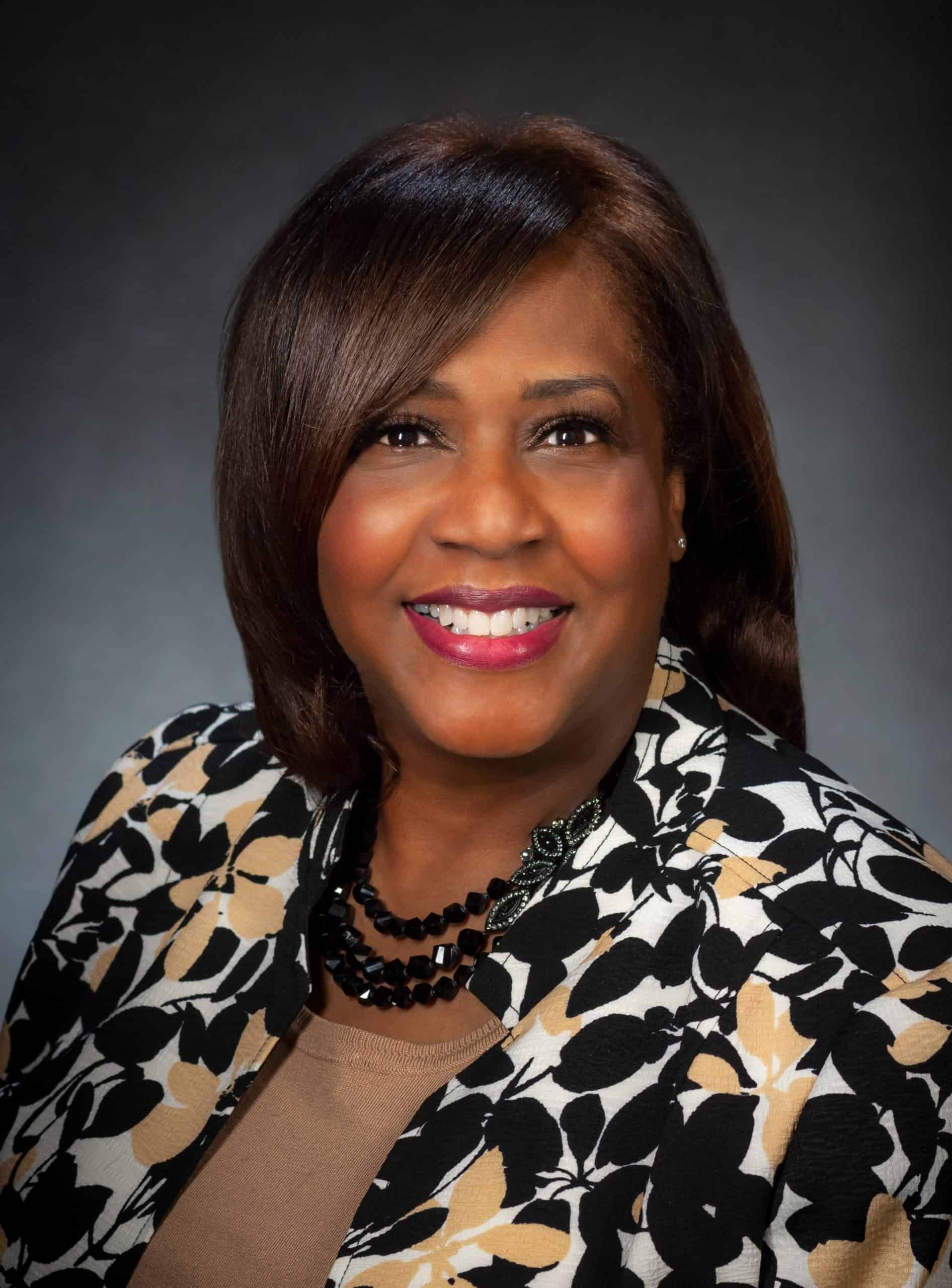
Tell us about your background: Where are you from?
I live in Cedar Rapids, Iowa, and work as an Electrical Design and Analysis Engineer at The Boeing Company in St. Louis, Missouri. I hold a Bachelor of Science degree in Electrical Engineering from University of Massachusetts-Lowell and a Technical Leadership Certificate from the James McKelvey School of Engineering from Washington University in St. Louis. After a 15-year break, I resumed my engineering career as an Engineer Design and Analysis Engineer in 2019 through Boeing’s return to work program. My previous roles include: STEM Consultant for the Arthur A. Collins Legacy Association; Director for STEM Programming for the Eastern Iowa for Multicultural Educational Programs, Inc.; Executive Director at the Iowa Innovation Learning Center (previously known as the Cedar Rapids Science Center); Semiconductor Application Engineer at Rockwell Collins, and Logistics Planning Manager at Anheuser-Busch Companies’ Wholesaler Computer Systems Division.
I value STEM education and careers and am passionate about providing STEM education to those who are often overlooked – low-income and minority communities. For over two decades, I have been engaged in planning STEM conferences and creating and presenting STEM workshops. Most recently, I had the honor of serving as a mentor for the Harris-Stowe State University’s inaugural STEM Workforce Preparedness Institute. My passion for discovery, education, and advocacy is consistent. That passion is fueled by my determination to show that a STEM career is attainable to all, no matter their background.
I received the 2017 Woman of the Year Award from the Women’s Equality Coalition of Linn County (Iowa) and am 2021 Black Engineers of the Year Modern-Day Technology Leader Awardee from the Career Communications Group recognizing my STEM outreach efforts.
My 20+ years of board and nonprofit leadership experiences include trustee of the Cedar Rapids Public Library Board of Trustees where I sit on the finance committee, executive board member of Iowa’s Sixth Judicial District Department of Correctional Services, and board member of The Revival Theatre Company. I serve in SWE’s Publications Outreach Work Group. I am a general body member of the National Society of Black Engineers, and Boeing Women Inspiring Leadership. I previously served on the United Way of East Central Iowa’s Education Solutions Team.
My husband, Jefferson, a senior system engineer for Collins’s Aerospace’s Common Platform Software Division, and I have four children. Our two oldest children are college graduates from Saint Louis University and Harvard College, respectively, and our two youngest started their junior year at Xavier High School in the fall of 2020. I am an avid music lover – from Chaka Khan to Chopin from Broadway musicals to blues. I also enjoy crocheting.
What attracted you to the world of engineering/STEM?
I had not considered an engineering career until McDonnell Douglas reached out to my high school about a summer internship program to introduce students to engineering careers. Starting in my sophomore year of high school through my senior year, I spent my summers learning and working at McDonnell Douglas. In 1997, McDonnell Douglas became The Boeing Company. I think that it is rather serendipitous that my engineering career started at McDonnell Douglass and reignited at The Boeing Company.
What does being from the African Diaspora or an ally mean to you?
Knowing that I hail from brilliant, strong, beautiful people provides a source of strength. It is hard to not be proud of that legacy.
How have you navigated your career as a woman of color?
I ignore the nonsense and step around the obstacles. I rely on the support and wisdom of women of color from all walks of life. They all have valuable perspectives that we all could learn from.
Have you experienced any challenges or discrimination because of your race or gender?
Of course, I have experienced discrimination based on my race and gender! As an early-career engineer, I had to dispel the myth that a coworker was spreading. He said that I really was not an engineer and the company just gave me that title because of affirmative action. That certainly was not true.
How have you surmounted them?
I know my worth. I know what I bring to the table. That is not to say that I don’t get knocked down – there are times that I do. But, when that happens, my family and my support squad provide a soft place for me to land where I am nurtured and built back up. That’s just what we do for each other.
Provide some positive experiences and successes you have accomplished working/schooling through STEM?
I consider my greatest accomplishments my STEM outreach efforts. Over the years, I have had the pleasure of seeing over 500 girls get excited about the possibility of becoming an engineer in a workshop I created for middle-school girls entitled, There Is Science in My Makeup! I count it as a win each time I see a student see that a STEM career is within their reach.
What advice would you offer to girls or young women who are interested in STEM?
First and foremost, my advice for girls and young women is to care for themselves mentally, physically, emotionally, and spiritually. They must always remember that struggle does not mean failure. Too often, when students of color struggle academically, they are quickly told the STEM field is too hard for them and they should change their major or their career goals. NOT TRUE!! Struggle does not equal failure. When students find themselves struggling, they need to make a beeline to the professor’s office hours, schedule time with teacher assistants, find tutors, and find time to do what brings them joy.
Did you have any mentors or role models who helped paved the way and/or shaped your educational/professional career path?
My parents grew up in St. Louis, Missouri and both received their bachelor’s degree in Missouri. At that time, segregation kept African Americans from earning degrees beyond a bachelor’s degree, so they had to go out of state to earn master’s degrees – and they did. As a matter of fact, my mother earned hers before my father, and she would not marry him until he earned his! She was a woman well ahead of her time. My father and mother were an award-winning, distinguished administrator and educator, respectively. They told and showed my siblings and me that even if barriers are erected in an attempt to keep you from getting an education, knock them down.
How can we prepare for opportunities and advocate for ourselves as women of color in the workplace?
It is imperative that we have a support system at work, at home, or with friends. To prepare for opportunities, it is necessary to know your stuff – and then some. Have no shame in asking questions. Seek out mentors. If you are not able to have a mentoring relationship with someone, ask for informational interviews.
You are involved in ERGs, professional associations and other D&I forums in the community. Why is that important to you and why should everyone be involved in championing inclusion?
I am a member of the Society of Women Engineers’ (SWE) Publications Outreach Work Group; general body member of National Society of Black Engineers (NSBE), Boeingfamilia, and Boeing Women Inspiring Leadership (BWIL). It is important as many people as possible to be involved in D&I forums because that is where uncomfortable conversations happen. From them, it is the hope that minds and, more importantly, behaviors, policies and practices will change. Advancing equity is everyone’s job.
Related Content:
- Black History Month: Highlighting African American Engineers, Pt. 3
- Black History Month: Highlighting African American Engineers, Pt. 2
- Black History Month: Highlighting African-American Engineers, Pt. 1
Author
-

SWE Blog provides up-to-date information and news about the Society and how our members are making a difference every day. You’ll find stories about SWE members, engineering, technology, and other STEM-related topics.

